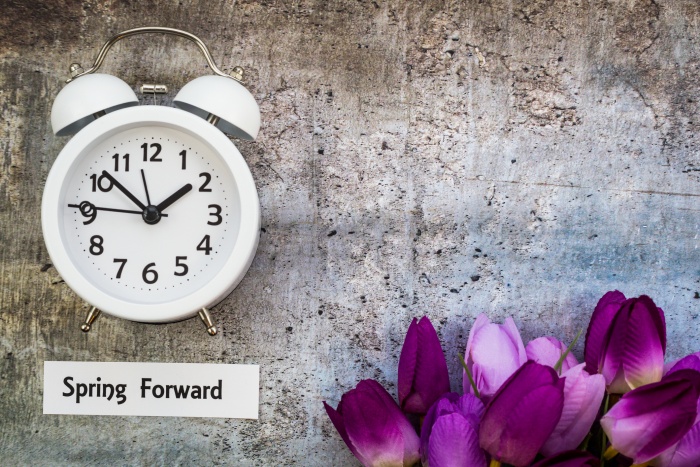Spring is just around the corner and that means it’s time to change our clocks. When we spring forward to daylight saving time, we lose an hour of sleep. Most of us feel the effect for a few days afterward. Losing even just one hour of sleep can cause you to feel tired the next day and impair your concentration.
Here are some tips to help you adjust to the time change and sleep better all year long:
Ease into the change
A few days prior to the time change, try to go to bed 15 minutes earlier, and then the next night aim for 30 minutes earlier.
Stick with your regular routine
The best way to adjust to the new time is to keep to your old schedule. Go to bed and wake up at the same time every day – even on weekends. This will enable your body to regulate its sleep cycle.
Avoid stimulants
Alcohol and caffeine can interfere with sleep. If you have trouble sleeping, avoid alcohol and caffeine for 4 to 6 hours before bedtime.
Resist the nap
Naps can be relaxing, but avoid overindulging the weeks before and after the end of daylight savings. While a short nap won’t hurt your sleep rhythm, a long midday nap can throw your circadian rhythm off, which is the last thing you want.
Exercise
Even moderate exercise, such as walking, or yoga can help you sleep better. Aim for at least 30 minutes of moderate exercise three times a week or more. If you often don't sleep well, try not to exercise too close to bedtime, as exercise expends energy that may keep you up at night.
Relax before bed
Stress and overstimulation can make it hard to fall asleep. Take a warm shower, or bath, before bed and curl up with a book, or listen to music. Try not to watch TV, or use your cellphone, or tablet, before bed. Electronics can hinder melatonin which triggers sleepiness. Make sure your bedroom is cool, dark, and quiet. Your bed should be comfortable and relaxing to you.



Comments